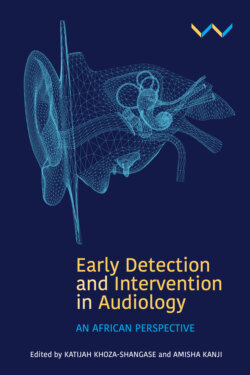Читать книгу Early Detection and Intervention in Audiology - Группа авторов - Страница 14
На сайте Литреса книга снята с продажи.
2 Exploring Early Detection of Hearing Impairment in Sub-Saharan Africa
ОглавлениеAmisha Kanji
Early detection of hearing impairment continues to be a challenge in the sub-Saharan African context, as well as in South Africa specifically. This challenge is due to a number of factors, including the health care context; other health care priorities that are the focus of the government; and a lack of resource allocation for successful, national implementation of newborn hearing screening (NHS). Another major challenge facing the region is linked to the social determinants of health.
This chapter explores early detection services in sub-Saharan Africa. It begins by describing the regional context, particularly health and health care and the availability of audiology and otolaryngology services, which are vital for the implementation of NHS programmes. The prevalence and incidence of hearing loss is presented, followed by a discussion of the principles for early detection of hearing impairment as defined by the Health Professions Council of South Africas' (HPCSA) early hearing detection and intervention (EHDI) guidelines. These guidelines are the only contextually relevant guidelines in the sub-Saharan context. Thereafter, a review of published evidence related to NHS in sub-Saharan Africa, and specifically South Africa, is presented. The chapter concludes with solutions and recommendations for early detection of hearing impairment in light of the challenges presented.
There are 49 countries in sub-Saharan Africa, of which seven are island states (Agyepong et al., 2018; Simkins, 2019). In 2017, the region had approximately 1.06 billion inhabitants (Statista, 2019). The population in sub-Saharan Africa continues to rise rapidly, and is expected to be the fastest-growing population of any of the world regions between 2015 and 2050 (Simkins, 2019). Given this context, access to equal and equitable health care remains a challenge (Chirwa, 2016).
Several factors contribute to inequality, inequity and poor-quality services in health care. Historically, access to health care has been a challenge for individuals of lower socio-economic status in sub-Saharan Africa. The reasons for this include: poor management of health care institutions; inadequate and insufficient health care personnel; physical and economic aspects related to access, especially when health care facilities are not located close to the population they serve; and financial constraints for patients who have to bear health care costs themselves (Olugbenga, 2017).
Health and health outcomes are not only affected by access to health care, but also by multiple, complex factors related to the social determinants of health (Ataguba, Day, & McIntyre, 2015). The social determinants of health are defined as the circumstances in which people are born, grow up, live, work and age, and the systems put in place to deal with illness (World Health Organization [WHO], 2017). Hence, the social determinants of health are influenced by social, political, economic, environmental and cultural factors, as well as those affecting human rights and gender equality (Ataguba et al., 2015). While these factors and the policies governing them do not directly impact health, they have a bearing on health and health equity (WHO, 2008). It is therefore vital to consider the impact of the social determinants of health when addressing health inequalities in specific countries or contexts. Scott, Schaay, Schneider, and Sanders (2017) propose an adapted conceptual framework for the determinants of health in South Africa. This framework describes biological and behavioural factors as having an immediate impact on health, socio-cultural factors as having an intermediate influence, and living and working conditions as well as structural factors (such as inadequate collaborative institutional and governance support and policies, resource distribution and inequity in political power) as having a distal or upstream influence. Khoza-Shangase discusses other contextual realities and challenges in the South African health care context in chapter 5. These need to be faced in order to contextualise EHDI in larger health care systems and against competing health care priorities.
